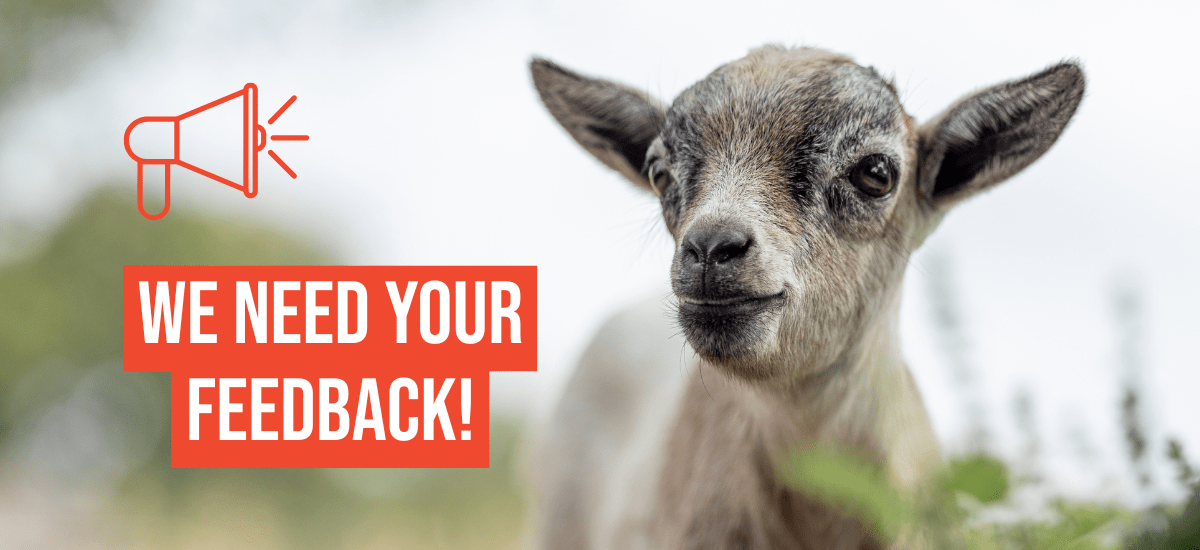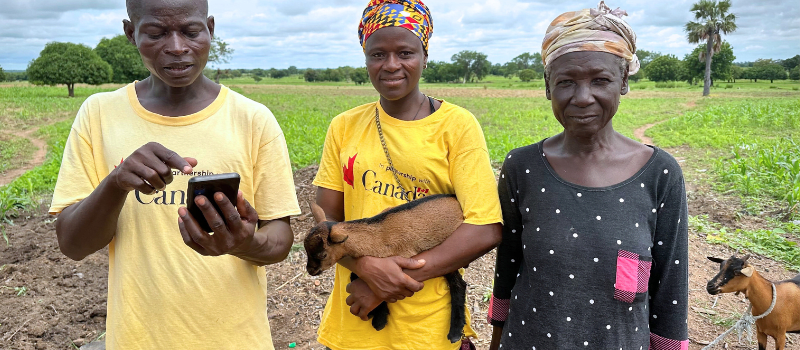Nestled in the remote corners of Vietnam’s Thai Nguyen province are Bao Cuong and Lau Thuong communes, characterized by ethnic minority populations predominantly relying on small-scale farming. In these communities, the scarcity of veterinary services has left livestock producers, particularly women, vulnerable to the devastating impact of diseases on their livelihoods. With only one veterinarian per commune, the range of animal health services provided is limited and linked to increased risk of poverty, food insecurity, and malnutrition.
Recognizing this gap, Veterinarians Without Borders (VWB/VSF) has joined forces with the Institute of Environmental Health and Sustainable Development (IEHSD), our dedicated VETS program partner in Vietnam, to implement empowering One Health initiatives that increase animal, human and environmental health.
Empowering Communities through Training
In 2023, the VETS team in Vietnam initiated the establishment of One Health Demonstration Sites in Bao Cuong and Lau Thuong communes. Also known as Farmer Field Schools, these demonstration sites are used to showcase environmentally sustainable and climate-smart crop and livestock production.

Specifically, 30 poultry farms were selected to participate in the pilot – 15 farms from each of the two communes. The selected community members and poultry farmers were trained and supported in implementing biosecurity and disease prevention practices in their livestock production. A preliminary assessment was also conducted on these 30 farms – the data from which will be used to help inform future policies and training programs to improve One Health within rural areas.
Additionally, 20 individuals – including members of women's and farmers' unions and village heads – were selected from the communes to become Community Animal Health Workers (CAHWs). To become essential and effective frontline workers delivering animal health services to the community, these CAHWs underwent a rigorous animal health, biosecurity, zoonoses, and One Health training program. Specifically, the 3-day course, conducted in Thai Nguyen City, covered essential topics such as good animal husbandry practices, disease identification and treatment, vaccine administration, and routine animal health services.

Importantly, the tailored CAHW training curriculum was thoughtfully and collaboratively developed by dedicated Canadian and local VETS volunteers, so that it addressed the specific needs of the local communities and their poultry production practices.
Inclusivity and Gender Empowerment
The VETS project's commitment to gender equality is evident in its selection criteria, with women occupying 50% of the CAHW positions. These women, drawn from farmer associations, women's unions, and village leadership roles, represent a vital force in transforming livestock management practices. Involving women in animal health care not only recognizes their pivotal role but also contributes to their empowerment, fostering a ripple effect of knowledge and potentially increased income within the community.
“Women in Vietnam are traditionally involved in the day-to-day care of animals on farms but often defer to the male member of the household when it comes to serious issues such as veterinary medications and care. By including them in the CAHW training programs, VETS is helping to better facilitate the role of women by educating those actually involved in the daily care of animals, and in turn, improving disease surveillance and early treatment nationally,” shared Dr. Regan McLeod, DVM, a VETS volunteer from Canada who recently completed a year-long placement with the IEHSD.
Knowledge Transfer and Community Impact
The impact of the CAHW training is palpable in the testimonials of participants. One trainee, a local veterinarian from Bao Thuong Commune, expressed a keen interest in disseminating the acquired knowledge. He proposed organizing periodic meetings with farmers to facilitate knowledge exchange, showcasing the potential for cascading benefits within the community. Pre- and post-training assessments revealed a significant shift in participants' approaches to livestock farming, underlining the success of the program in imparting practical skills and knowledge.
 Contributions to Sustainable Development Goals (SDGs)
Contributions to Sustainable Development Goals (SDGs)
The outcomes of the CAHW training align with Sustainable Development Goals, contributing to poverty reduction, food security, and agricultural development. Trained CAHWs are poised to play a pivotal role in early disease identification, community education, and the promotion of environmentally sustainable farming practices. The initiative also champions gender equality, positioning female CAHWs as experts within the field and opening avenues for increased income generation for women.
"The training was an eye-opener for me, and I learned a lot. I have become more aware of the importance of biosecurity and have started implementing the techniques I learned in the training course in poultry farming," shared a grateful CAHW trainee.
Canadian and Local Volunteer Impact
Crucial to the success of the VETS program in Vietnam, and across all six program countries, is the invaluable contribution of Canadian and local volunteers. Their dedication and expertise are the driving force behind the program's implementation, ensuring that communities receive tailored support and knowledge transfer. Through the collaborative efforts of volunteers and local partners like the IEHSD, the VETS program achieves its mission of building capacity, fostering sustainable practices, and creating a positive impact on communities.
“From targeted training sessions for women to inclusive discussions on gender roles, my goal as a Gender Advisor Volunteer is to create an environment where gender disparities are acknowledged and addressed. For example, I conduct women-focused training sessions on risk communication. I also facilitate discussions on the roles of men and women in farming communities and how these roles can impact disease transmission. In these discussions, we explore practical strategies to increase gender responsiveness in our activities,” shared Kavitha Sriparamananthan, a VETS volunteer from Canada currently completing a 2-year placement with the IEHSD.
Scaling Up for a Brighter Future
Overall, the success of the One Health Demo Sites and CAHWS pilot in Bao Cuong and Lau Thuong communes serves as a catalyst for scaling up the program. In particular, CAHWs emerge as crucial pillars in addressing the absence of veterinarians at the local level. Their interventions promise healthier livestock, leading to increased income for smallholder households. The IEHSD envisions replicating these triumphs in other projects, extending its reach to encompass training on chemical and agricultural waste management, prevention of zoonotic diseases, and strategies to combat antimicrobial resistance.
VETS is a 7-year initiative (2020-2027) to improve the economic and social well-being of marginalized people, particularly women and girls, in 6 countries across Africa and Asia. In collaboration with local partners, the program is implemented through 190 Canadian volunteers on international assignment and is generously funded by Global Affairs Canada.






